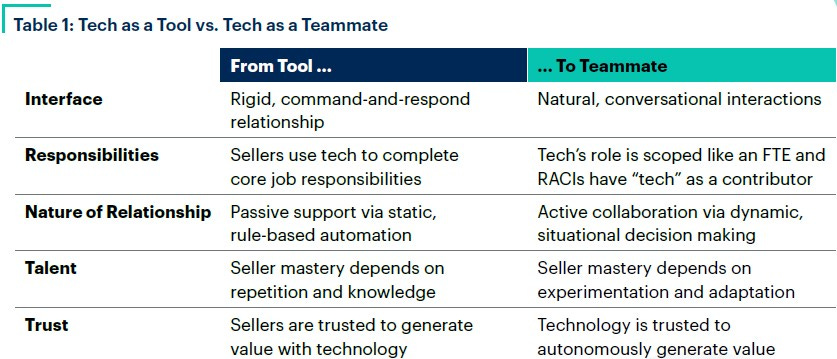Why Happiness matters for Sales Teams: a key to better performance
Yes, you read correctly "Happiness".
You might think that combining “Happy” and “Sales team” in the same sentence is an oxymoron. After all, studies show that sales teams often have lower engagement levels compared to other departments, higher turnover rates, and a host of indicators pointing to a general sense of unhappiness. The constant pressure to meet targets certainly contributes to this. However, this reality doesn’t have to be the status quo.
In fact, research from Harvard Business Review Analytic Services (Companies with Happy Sales Teams Experience Better Business Outcomes) reveals that there is a strong correlation between a happy sales team and improved business outcomes -higher sales, better win rates, and greater customer satisfaction. Let’s explore how “happiness” can be a game-changer for sales team performance.
Key Findings
Sales Team Happiness as a Leading Indicator of Success
81% of executives whose sales teams rated their happiness at 8-10 (on a scale of 0-10) reported increased annual sales over the past two years.
In contrast, only 59% of those who rated their teams between 0-7 saw similar improvements.
Sales Organizations with Happy Teams Outperform Their Peers
29% higher sales team quota achievement
26% higher success in opening new business
25% higher customer satisfaction
21% higher productivity
20% higher conversion rates
The role of culture: creating a happy sales environment
"Happiness" is a subjective term, but studies show that sales teams who feel happy often attribute this to a positive culture, the right technology, and leadership that prioritizes well-being. Teams described as "social," "transparent," and "supportive" foster an environment conducive to happiness - and better performance. In contrast, teams in “work hard, play hard” or “goal-driven” environments are more prone to stress, burnout, and unhealthy competition, which can undermine long-term success.
As I discuss further in our article about team dynamics (The Intriguing Concept of 'Team' in Sales: Football or Formula 1?), leadership plays a crucial role. While strategy provides direction, happiness is something that must be nurtured daily. Sales leaders should embrace a coaching mindset:
focus on people first,
numbers second,
and strategy third.
This may seem counterintuitive, especially in a high-pressure environment like sales, but consider the approach in Moneyball, where the coach focuses on building a team rather than just achieving immediate results.
The role of leadership: turning the tables
In Moneyball, Brad Pitt’s character challenges traditional methods and transforms his team by focusing on overlooked factors. Similarly, sales leaders can revolutionize performance by focusing on happiness as a core strategy. This shift in mindset can yield significant benefits for sales teams, much like how focusing on getting on base led to baseball victories.
Watch the clip from Moneyball to understand how thinking differently can lead to extraordinary results: Watch on YouTube
The impact of technology and tools on Happiness
Sales technology (and process) plays a critical role in both happiness and performance. In many cases, tech tools are selected for managers, not salespeople, leading to frustration. Happy teams, however, report better experiences with CRM systems, with 25+ percentage points higher satisfaction regarding ease of use, helpfulness, and time efficiency. Teams that are involved in selecting their tools are more likely to report higher satisfaction and performance.
When tech tools align with sales processes and enhance rather than merely track activities, they directly contribute to higher morale and better results.
If your organization has a Sales Enablement team, ensure there is an established dialogue between them and their internal customer—i.e., the Salespeople. Trying to “enable” people to do a job you don’t understand (and most likely don’t know) is very difficult. This is often a source of frustration that could be easily improved.
Don’t miss our article CRM – the Heart and Backbone of Your Organization for more insights.
Key drivers of Happiness: more than just compensation
While compensation is an important factor, it's not enough to keep a sales team happy if it’s misaligned with personal goals. Other key drivers of happiness include:
Trust and transparency within the organization
Enjoyment of work and a feeling of energy and engagement
Supportive leadership and recognition
Work-life balance and career development opportunities
(In case you missed it: The power of Sales Compensation: how incentives drive results)
Actionable takeaways for B2B Sales Leaders
Prioritize Sales Team Happiness: cultivate a culture of trust, transparency, and support.
Reevaluate sales technology (and process): ensure tools are intuitive, supportive of sales goals, and chosen in collaboration with the sales team.
Focus on individual needs: offer clear career development paths, support work-life balance, and recognize personal milestones.
Shift from traditional “Goal-Driven” cultures: create more collaborative and nurturing environments that foster long-term engagement and success.
Bottom line: happy Sales Teams drive better results
Research underscores a powerful message: Happy sales teams don’t just have higher morale — they outperform their less-happy counterparts. Investing in the well-being of your sales team isn’t just the right thing to do; it’s a proven strategy for achieving significant business results.
On related topics:





If I may, I would say that "happiness" is not the right word to use in a business environment; from my point of view, it does not make sense. I would rather say "satisfaction".
We did not read the same HBR article :) https://hbr.org/2019/07/why-you-should-stop-trying-to-be-happy-at-work (I know it is old, and I am also skeptical about the "meaning" that is now used about anything and everything). Thank you for the article!